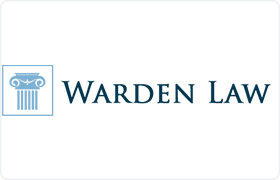Ponce De Leon Criminal Lawyer, Florida
Sponsored Law Firm
-
 x
x

Click For More Info:
-
Warden Law
361 Beaver Lake Rd Unit B Tallahassee, FL 32312» view mapCriminal Defense Law, Child Custody, Criminal Defense Law Accomplished. Determined. Experienced.
Having a capable and compassionate lawyer on your side can give you a better chance at resolving conflicts so everyone can focus on the next chapter of their lives.
800-973-7890
Matthew David Schultz
✓ VERIFIEDAccident & Injury, Criminal, Eminent Domain, Motor Vehicle, Lawsuit & Dispute
Mr. Schultz is an accomplished lawyer that has over twenty years of legal experience in accident & injury matters. He also specializes in various as... (more)
David Walker Green
Land Use & Zoning, Criminal, Commercial Real Estate, Estate Planning
Status: In Good Standing Licensed: 43 Years
Clayton J. M. Adkinson
Civil Rights, DUI-DWI, Child Support, Administrative Law, Federal Appellate Practice
Status: In Good Standing Licensed: 51 Years
A Wayne Williamson
Accident & Injury, Estate, Real Estate, Criminal
Status: In Good Standing Licensed: 27 Years
Ruston Ryan Sanders
Land Use & Zoning, Lawsuit & Dispute, Criminal
Status: In Good Standing Licensed: 19 Years
 Stan Warden Tallahassee, FL
Stan Warden Tallahassee, FL AboutWarden Law
AboutWarden Law Practice AreasExpertise
Practice AreasExpertise

